The Brief and Troubled History of Universal Monster Reboots

Despite being nearly a century old, the Universal Classic Monsters still remain titans of the genre. Early additions like Phantom of the Opera, The Man Who Laughs, and The Hunchback of Notre Dame cemented Lon Chaney Sr. as one of Hollywood’s first horror icons and brought the legendary Conrad Veight to American screens. With 1931’s double hitters of Dracula and Frankenstein, some of horror’s first talkies, the Universal Monsters universe was created. From 1931 to 1954’s Creature from the Black Lagoon, Universal produced what would become classic after classic and manufactured career highlights for icons like Lon Chaney Jr., Bela Lugosi, Boris Karloff, and Vincent Price.
As iconic as these films are, Universal’s attempts to reboot their horror franchises in recent decades have largely flopped. It seems like no matter how the studio tries to bring their classic properties back—be it a direct reboot, soft reboot, requel, or spin-off—the charm and allure of the originals are never captured. I want to explore why Universal seems so bent on modernizing their classic horror properties and, more importantly, deduce the reasons why they tend to miss the mark by a Transylvanian country mile.
Phase 1: 1999-2009

Universal’s first attempt at bringing their old monsters to new audiences was 1999’s The Mummy. In lieu of the early supernatural elements of the 1932 original, director Stephen Sommers went for a more action-adventure film with horror elements. Two other elements that will make their way into nearly every other entry originated with The Mummy as well: deep lore and production issues on top of production issues. The film went through several screenwriters and directors including big genre names like George Romero, Joe Dante, Clive Barker, and Mick Garris. All wanted to bring their own twist to the original story of Imhotep and all eventually parted due to creative differences with studio executives.
After nearly ten years of rotating screenplays, Sommers stuck as a writer/director due to his bold vision. The eventual final film elaborated heavily on both the Mummy himself and gave the protagonists actual story arcs. The largest difference was how Sommers leaned heavily into Indiana Jones-style action with horror elements like the flesh-eating scarabs thrown in for flavor.
From a financial standpoint, The Mummy was an outright success. In fact, it made back nearly five times its budget proving that Universal’s investment in a Super Bowl commercial was a good move. However, its initial critical reception was incredibly mixed. Most positive reviews, including one by Roger Ebert, praised how the movie was a generally enjoyable time and the chemistry between Brendan Fraser and Rachel Weisz sold the story. Critics generally liked its graphics and effects, despite their similarities to others done by Industrial Light and Magic, but were less down with the transformation of a classic horror property into a period piece/ action-adventure flick. The largest critique was the style–over–substance approach: something that would plague Sommers in his next reboot venture. Despite this, the financial success of The Mummy spurred multiple sequels and quickly rose to its current status as a cult classic.
After the success of The Mummy and its sequels, Universal essentially gave Stephen Sommers the key to all of their classic horror properties. For his next project, Sommers decided to reboot not just one classic Universal Monster but four in 2004’s Van Helsing. Much like with his previous venture, Sommers wanted to pay homage to the classic, gothic properties but with the same high-octane action. The production design team was also given some original set pieces from the original Frankenstein to use which provides some visual cohesion with the original films.
However, it’s hard to tell because almost every shot in this film has poorly aged CGI. New lore was created in order to fuse the worlds of Dracula, Frankenstein, the Wolfman, and Dr. Jekyll/Mr. Hyde together. Instead of the older, scholarly, free agent role that Van Helsing usually takes, he’s a bounty hunter for the Church played by Wolverine–era Hugh Jackman. The monsters also look and feel very different from their original film and literary incarnations.
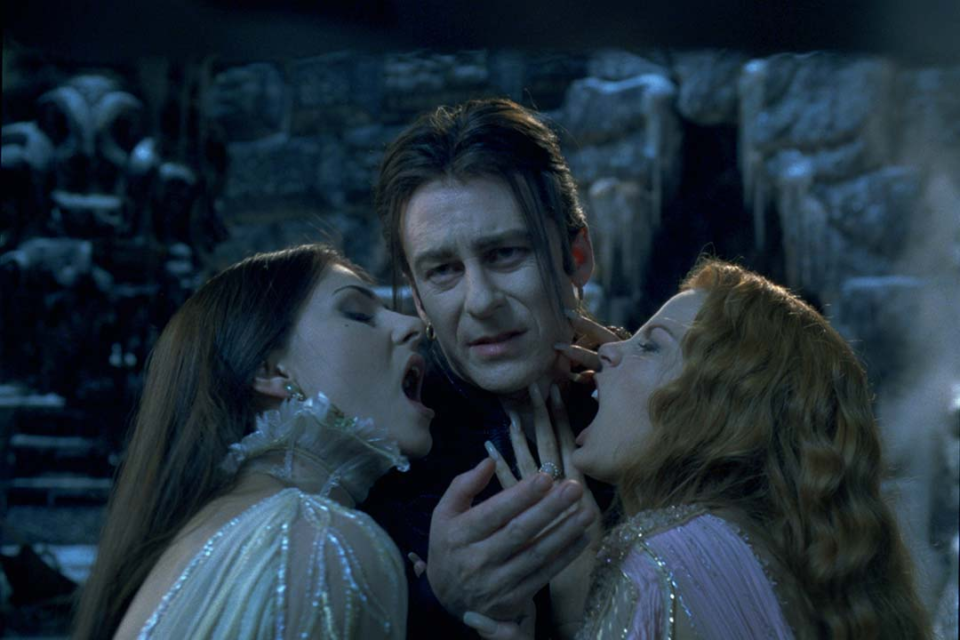
This version of Dracula (Richard Roxburgh) is much more megalomaniacal compared to the suave Bela Lugosi. Frankenstein’s monster is steampunk and talkative, and his creator is barely present. Dr. Jekyll and Mr. Hyde, a property Universal hadn’t touched for nearly a century, is really there in name only. And despite Stephen Sommers himself saying Velkan Valerious (Will Kemp) is a Wolfman homage, the werewolves in Van Helsing are entirely different beasts compared to the OG Larry Talbot.
The ambitious idea to fuse so many stories and genres into a 131-minute film simply did not pay off. Van Helsing was not a runaway hit like Sommers’s first dip into the Universal Monsters. The studio went all-in on marketing for the film including several tie-in video games, a Saturday morning cartoon, and even a ride at Universal Studios. Though it never held the number one slot like Sommers’ previous effort, it wasn’t a box-office bomb.
The same cannot be said for its critical reception. Critics lambasted nearly every aspect of the film: the story was all over the place, the tone was wildly inconsistent, and the over-reliance on special effects was obnoxious. Over the last two decades, some have come to accept the film as a silly spectacle, but the film isn’t as beloved as Sommers’ The Mummy. Whether it be from its middling domestic performance or the critical shelling, this was the film that took away Stephen Sommers’ keys to the Universal Monster kingdom.
Phase 2: 2010-2016
Despite the critical lambasting that Van Helsing took, Universal decided to greenlight another attempt to bring their classic monsters to the modern age. This time studio executives switched gears to focus on an updated, direct remake. The Wolf Man suffered the same issues with development that plagued The Mummy. It took two years to have a director stick with the project, and there were plenty of other rotating staff changes throughout development due to creative differences with the studio. Some big names that were eventually dropped from the project include Danny Elfman as the composer, Frank Darabont as director, and Andrew Kevin Walker as screenwriter.
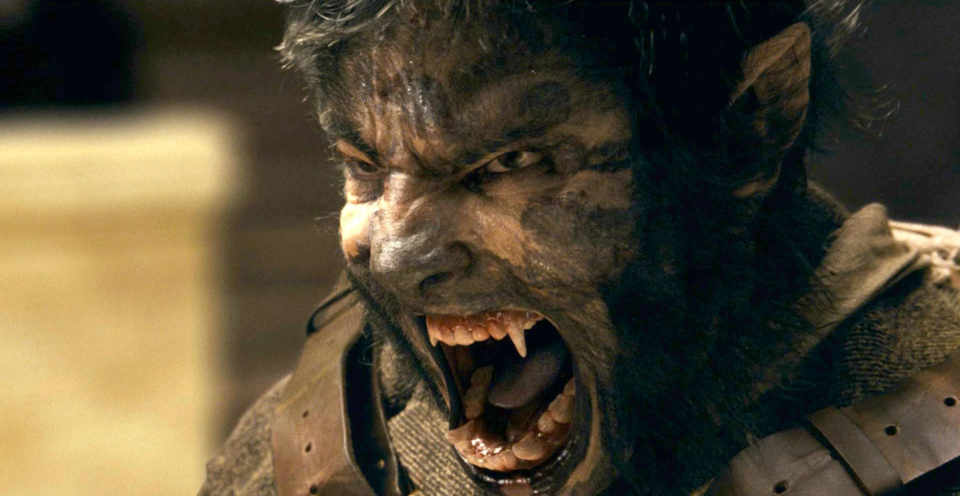
The only person that stuck from the film’s inception to its final product was the new Larry Talbot himself: Benicio del Toro. In the months leading up to filming, a handful of other huge horror names were also brought onto the project. Anthony Hopkins takes on the role of Lord Talbot, Max von Sydow has a quick cameo in the director’s cut, and the legendary Rick Baker was brought on to do special effects. Unfortunately, Baker’s original vision to outdo his practical transformations in American Werewolf in London was cut due to a last-minute director switch mere weeks before principal photography started.
Considering the number of directorial changes, script edits, and reshoots, the film releasing at all was a small miracle. However, the extra attention nearly doubled the film’s original budget to $150 million, mostly due to extensive last-minute reshoots. The release date was pushed back four separate times pushing it from a perfect post-Halloween 2008 release to a dull mid-February 2010. The film was unable to recoup the increased costs, and did poorly in domestic markets after its opening weekend.
Critics did not gravitate towards the film either with generally middling reviews. Benicio del Toro’s performance and Rick Baker’s effects were praised unconditionally, but everything from the shallow script to the direction to the (honestly decent) CGI effects were critiqued. Even Anthony Hopkins was notably pointed out for a phoned-in performance. There is one small victory for The Wolfman, though. Baker and his team were given an Academy Award for their work on the film, making this the only film on this list to be Oscar-winning. Despite this, former Universal president Ronald Meyer has explicitly named this film as one of the worst the studio has released.
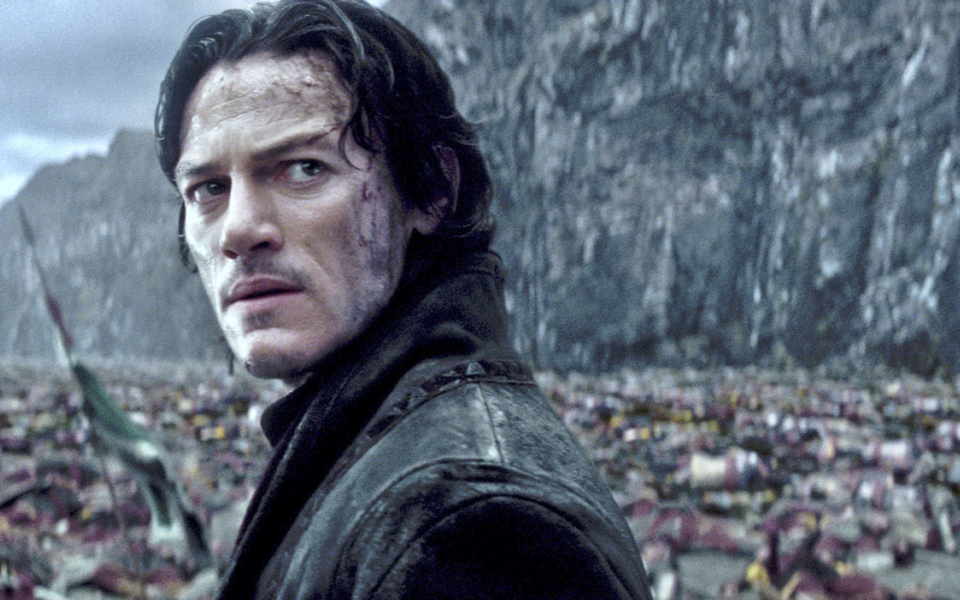
With the direct remake route leading to one of Universal’s biggest failures to date, studio executives decided to shift gears. Dracula Untold puts the Prince of Darkness in the spotlight with a brand new origin story. Once again the search for a director caused a very rocky start to production. Alex Proyas, director of The Crow, was hired back in 2007 to direct the film then called Dracula: Year Zero.
Due to a budget increase and Universal’s push to cast Sam Worthington in the title role, Proyas was cut from the project. Ironically, Worthington would be cut from the project a year later. In their places, first-time director Gary Shore and Tolkien Bard Luke Evans were brought on. The script was also handled by newcomers Matt Sazama and Burk Sharpless who would go on to write Morbius…very fitting. The general premise from the Proya project was kept, but the film was pivoted from traditional gothic horror to more of an action-drama.
Dracula Untold was originally planned to be released at the tail end of 2014’s blockbuster season but was pushed back to early October, presumably to lower competition with Fifty Shades of Grey. The film was then moved all around October before settling on October 10th to give a solid three weeks of coveted spooky season screentime; this meant the film was competing against heavy hitters like Gone Girl for the top box office slot. The film wound up grossing nearly three times its budget across all markets, and exceeded pre-release budget predictions for the first few weeks of its run.
Though it succeeded financially, Dracula Untold was yet another critical failure. Despite simultaneously being a re-telling of the man and the mythology behind one of literature’s most prolific monsters, the film was largely considered bland. The Hollywood Reporter unfavorably compared it to the same year’s I, Frankenstein: a film I was surprised wasn’t on this list. Both were just action-heavy, generic, watered-down retellings of classic horror tales. While audiences gave more positive reviews, Universal had another plan brewing for a new spin on their classic monsters.
Phase 3: 2017-2019
By 2016, the cinematic universe became the formula for box office success. Despite the horror genre having quite a few crossovers, some done by Universal themselves in the 1940s and 1950s, there was no modern cinematic universe for horror juggernauts. So, Universal began brainstorming the eventual failure that was the Dark Universe: a fully realized reboot of each of their iconic monsters with the action and darker edge of The Wolfman and Dracula Untold. The latter was actually rumored to be the start of the new cinematic universe, but was eventually scrapped. Dracula Untold served as Ang Lee’s Hulk in a way. For the time, the potential of the Dark Universe was huge.
We’ll never know how exactly this would’ve played out though because of 2017’s The Mummy. The production of this film is also quite troubled, mostly due to one huge hijacking. Originally, Len Wiseman of the Underworld franchise and Andy Muschietti of the It remakes were originally in talks to direct. Eventually, the role went to Transformers screenwriter Alex Kurtzman.
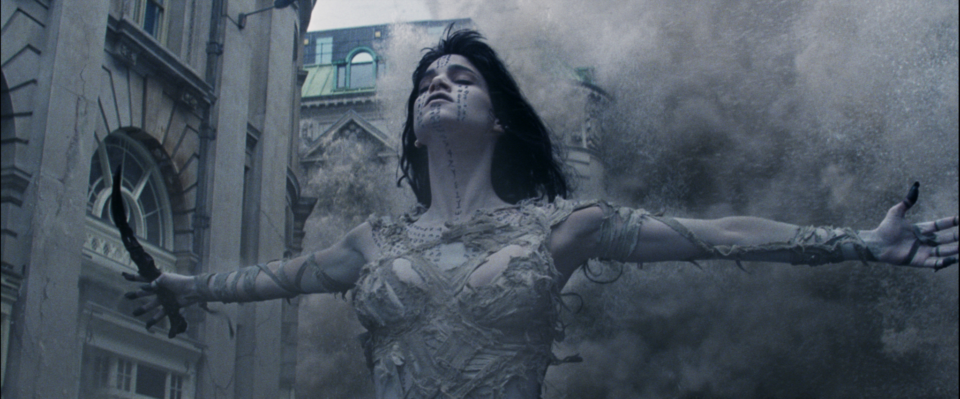
However, a Variety piece released shortly after the film alleges that Kurtzman had very little control. ALLEGEDLY Cruise essentially turned the film, which was already action-heavy, into a vehicle for himself. His contract gave him final say on the screenplay, rewrites, and post-production development. Though Universal maintains no such thing happened, interviews with Kurtzman since have suggested otherwise. Considering The Mummy—both the original and the Brendan Fraser feature to a lesser degree—were horror films, the 2017 remake was primed to be at odds with its predecessors. Cruise’s looming influence and an inexperienced director set the film up for disaster.
Due to the film’s ballooning marketing costs, The Mummy wound up being a financial failure. The film wound up doing so poorly in North America in its first two weeks that it was pulled from a little over 800 theaters. A myriad of factors might have caused this: blockbuster fatigue, remake fatigue, and stiff competition from both the action and horror fronts. The Mummy is also the most critically panned addition to the extended Universal Monster universe. Honestly, all the films on here can be argued to have merit in some way or re-evaluated as a cult classic. The Mummy is despised through and through.
As I alluded to earlier, the film’s switch to a Tom Cruise vanity piece did not go over well. Critics pointed out the tonal inconsistencies, the complete elimination of any horror aspects, the borrowed plot points and aesthetic choices, and the fact a fifty-year-old Tom Cruise is still playing the same character from thirty years prior. It also does the cardinal sin of setting up a universe: focusing on setting up future plot points in lieu of focusing on the individual story. All of these problems resulted in Universal quickly scrapping all plans for all following films. The Mummy and a derelict Twitter account are all that’s left of the Dark Universe.
Phase 4: 2020 Onwards
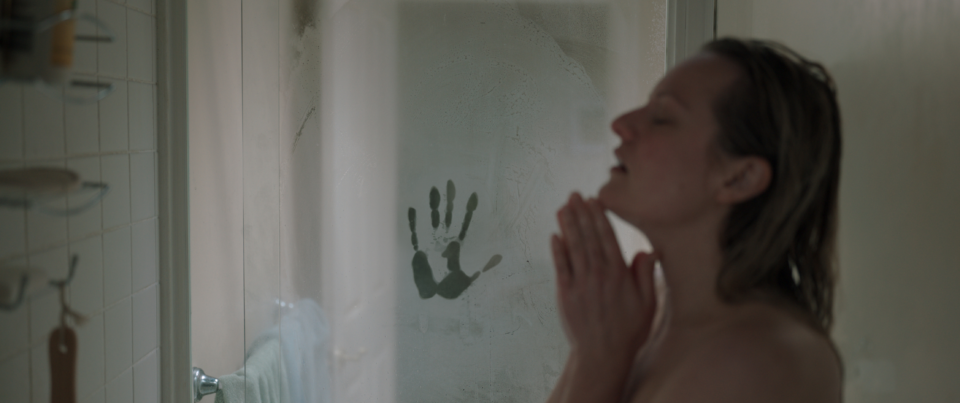
After almost two decades of half-baked reboots and the cancellation of the Dark Universe, Universal decided to circle back to solo releases. In 2019, Jason Blum gained producing rights and sought to revive The Invisible Man from the dead. Instead of revamping the planned Dark Universe idea, a smart decision in hindsight, Leigh Whannell signed onto the project as the writer/director. Whannell was primarily known for his work on the early half of the Saw franchise and the Insidious trilogy, but his previous directorial efforts were also well-received. His 2018 film Upgrade ended up being the perfect primer for his Invisible Man reboot: a tense and emotional sci-fi horror done on a relatively low budget. With the star-studded cast list releasing throughout 2019, horror fans started becoming progressively more excited for the newest reboot of the classic Universal property.
Even with the COVID-19 pandemic cutting its theatrical run short, The Invisible Man was a critical and financial smash. It grossed almost $145 million globally against an $8 million budget; this is even more impressive considering nearly two-thirds of its theatrical run was cut short and moved exclusively to drive-ins. Audiences and critics alike absolutely adored nearly everything about the film with the performances of everyone’s new favorite Scientologist Elisabeth Moss and Haunting of Hill House darling Oliver Jackson-Cohen being standouts.
Whannell’s direction and screenplay as well as the cinematography, editing, score, and special effects were all nominated for or won several awards. The script, direction, and editing were praised for maintaining a suspenseful atmosphere and sticking to a solid tone. Several critics and women’s rights groups praised Moss’ portrayal as an abuse survivor as well. As of December 2022, The Invisible Man is number nine on Rotten Tomatoes’ list of top horror movies.
Unfortunately, the same praise cannot be said for Universal’s latest attempt at a reboot. Renfield, a direct sequel to 1931’s Dracula, is conceptually one of the better ideas for a retelling. Recontextualizing the original film from the point of Dracula’s familiar and moving it to the modern era is an intriguing premise. This is yet another film that was stuck in a layer of development hell. Pitches for a comedic retelling of Dracula from his familiar’s perspective were bouncing around Universal since 2018. Robert Kirkman, co-creator of The Walking Dead comics, and Ryan Ridley from the Rick and Morty writer’s room formulated the pitch, and Universal ate it up. Pressure was placed on Universal to speed up production after the success of The Invisible Man reinvigorated the studio’s interest in horror reboots.
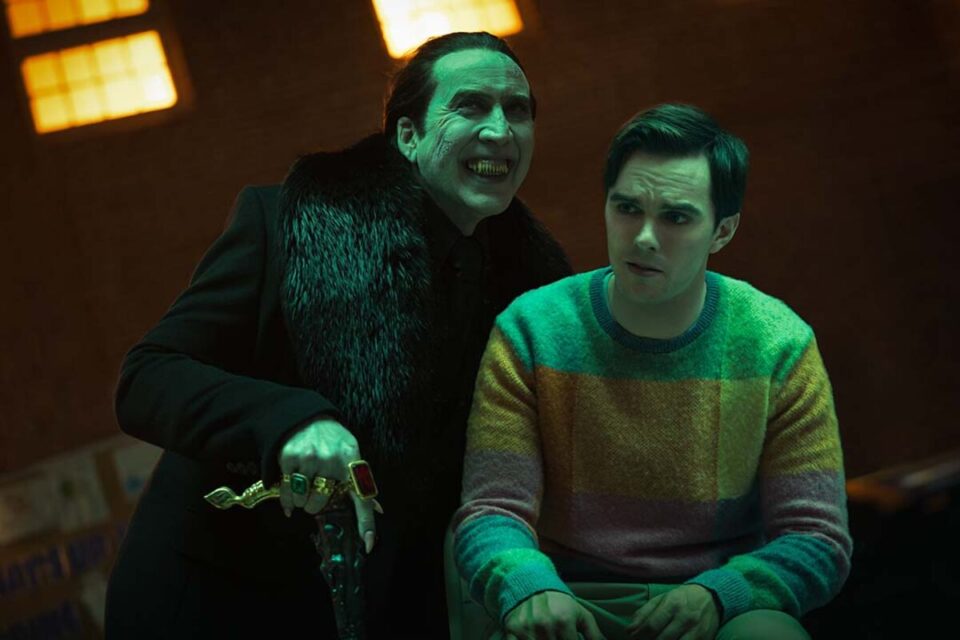
Eventually, Chris McKay of Lego Batman Movie fame was appointed as director with Kirkman and Ridley’s script. Nicholas Hoult and Nicolas Cage were eventually announced to hold the two lead roles: a particularly inspired choice, especially since the Prince of Darkness is a longtime dream role for Cage. McKay confirmed in early 2023 that Renfield would be a quasi-sequel to Universal’s 1931 film including bits of the original with Hoult and Cage edited in the place of Dwight Fry and Bela Lugosi.
Currently, it’s set up to be another financial flop in the Universal Monster Extended Universe. Part of this can easily be attributed to the decline of in-person moviegoing since COVID, though I hypothesize Renfield’s premise also alienated potential audiences. Renfield, the character, is an ancillary part of Dracula lore; his role changes frequently across adaptations, and the film really appeals more to hardcore horror fans than anyone else.
From a critical viewing, the film is doing about as well as gory horror comedies do. Hoult and Cage are consistently praised—as they should be, they’re incredibly dedicated to their roles—and the smaller comedic gags tend to stick. The largest hits the movie took were its script and the third lead I’ve purposely been dancing around: Awkwafina. In the vein of Spiral, Renfield tries its hand at timely political commentary. However, it’s incredibly hamfisted, lays in hard on the “there’s always one good cop” mindset, and honestly could’ve been removed from the film with very minor rewrites. Awkwafina plays the one “good” cop, and yet the film does nothing to even attempt to make her seem good OR sympathetic outside of a traumatic backstory. Overall, the film is a bit uneven but it’s a welcome departure from the samey attempts at rebooting the classic monsters.
Final Thoughts and Feelings
As of May 2023, Universal only has three reboots of their classic monster properties in the pipeline. The Last Voyage of the Demeter, helmed by Scary Stories to Tell in the Dark’s Andre Øverdal, is set to release in August. While it might seem odd that Universal slated two re-imaginings of Dracula mere months apart, this film seems to be closely based on Bram Stoker’s original novel. Øverdal might be a newer name to horror fans, but his adaptation of Scary Stories to Tell in the Dark is solid evidence that he knows when to stick to the source material and when he can take some creative liberties.
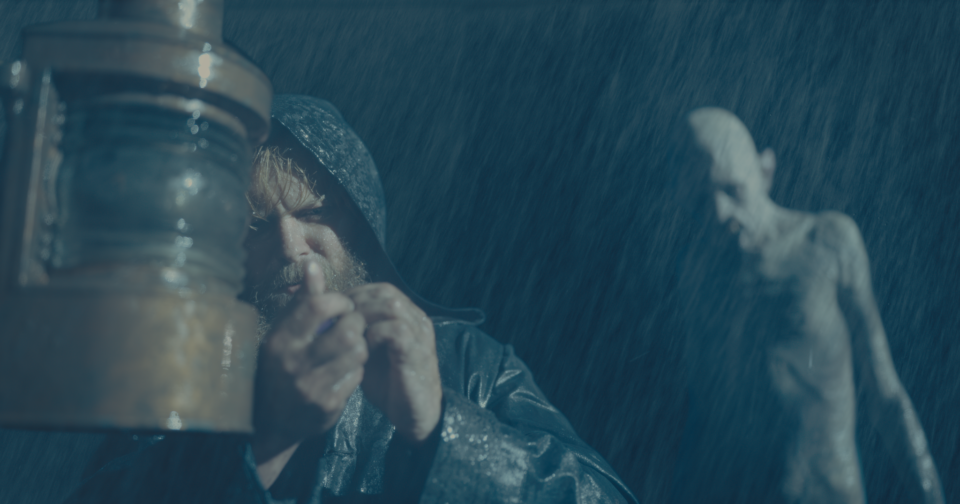
As of March 2023 Oscar winner Chloe Zhao is working on another Dracula reboot with an added sci-fi twist. The last time Dracula met sci-fi was in Van Helsing: a bad precedent but a low bar to clear for the film to succeed. This is still in early production, so we’ll have to wait a while to see how it stacks up with the many, many Dracula reboots.
The final film in the pipeline is another Wolf Man remake. This is the sole hold-over from the Dark Universe era, and it’s been in and out of development for the better part of a decade. Leigh Whannell was set to direct this reboot as well, but left in 2021 due to scheduling conflicts. As of late 2021, Derek Cianfrance is set to direct and Ryan Gosling is still set to star. This film has been in production hell for nearly a decade now, but perhaps we’ll be hearing more concrete confirmation in the coming years.
The overwhelming trend with the Universal Monster reboots, and why I surmise the majority have failed, is because they stray so far from the charm of the originals. After the runaway success of 1999’s The Mummy, Universal tried to replicate it by leaning into action-adventure as a form of “modernization”. While this did work with Sommers’ take on The Mummy, more established horror properties with strong ties to their gothic roots suffered. Studio interference also hurt most of these films that originally had more established directors or directors with more experience in the horror genre at their helm.
As the age of the cinematic universe and “dark” retellings took over Hollywood, Universal chased their success with increasingly negative results. In their most current era of reboot attempts, the diversity in the genre has the potential to produce more successes than flops. Focusing on standalone stories and granting directors and writers creative freedom appears to be the key to success—shocking, I know. The latest crop of films has also been focusing more on targeting hardcore horror fans rather than mass market appeal. Perhaps if this latest crop of films succeeds we’ll be seeing more focus on spurned Universal Monsters. For now, we must contend with the fact we are in a timeline where Tom Cruise’s The Mummy was released in theaters.
Categorized:Editorials
